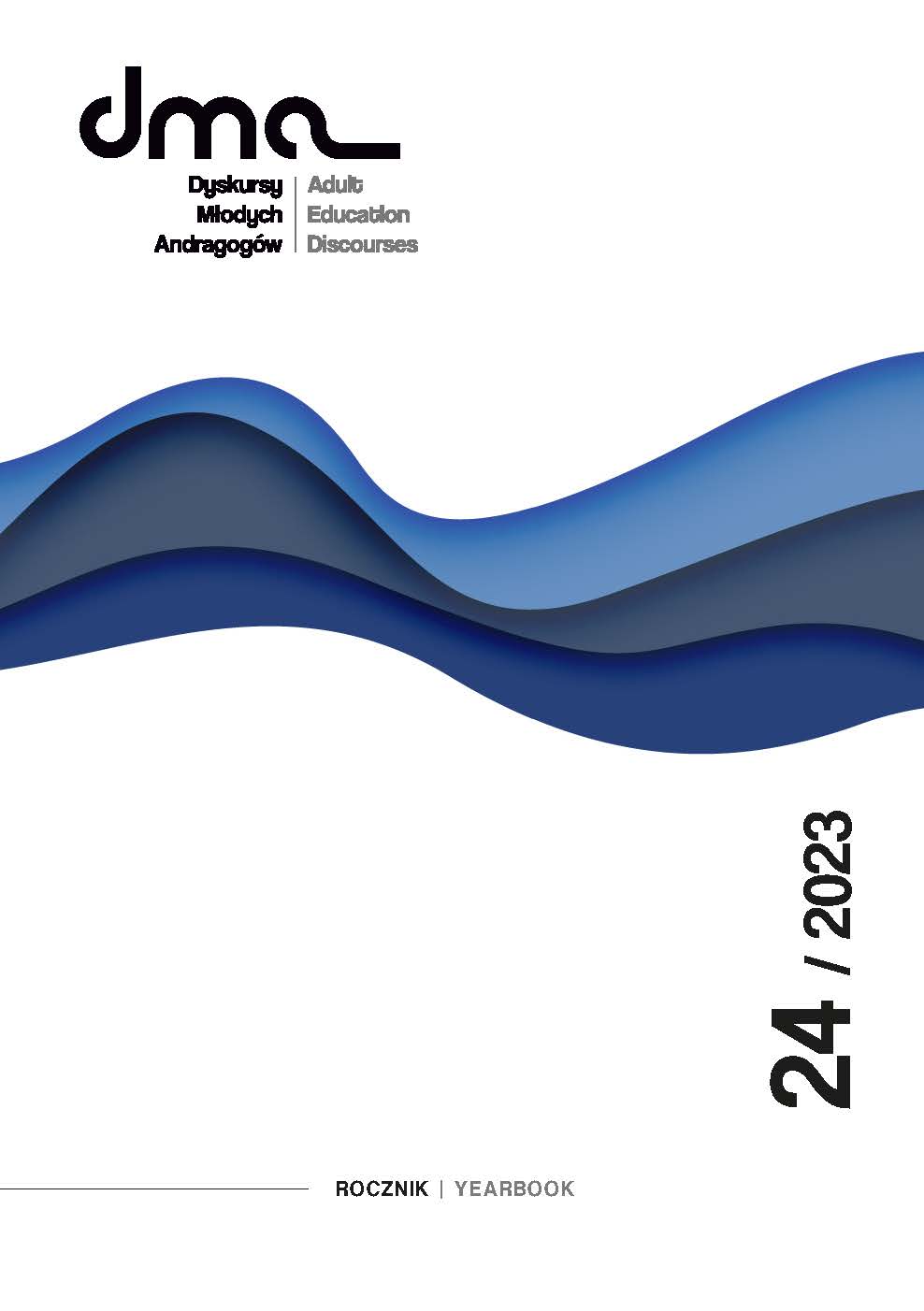Abstrakt
In this essay, the author reflects on the type of research that it is possible to undertake to produce useful knowledge for common people and, importantly, created by common people starting from their problems, their worries, or their questions. Two different research projects are briefly described, both with an approach based on participatory research. The first, around the repression that occurred in the Spanish Civil War and afterwards during the Franco dictatorship, is research geared to re-appropriate common history and thereby re-write historical memory. The second project has as its focus the re-evaluation of popular craft skills and professions and is centred on examining the significance of the river for a small village in Spain. In the conclusion the author focuses on how this kind of research can help people to leave behind them the Culture of Silence and how it provides them tools for expressing their culture and their histories. The essay also focuses on the co-creation of knowledge as a way to produce alternative knowledge that is able to challenge the official versions of knowledge that stand in contradiction to people’s life experience.
Bibliografia
ARMH (19.12.2022) “Hay un cortafuegos aún hoy que impide investigar los más de 100.000 desaparecidos en España” [Interview with Emilio Silva conducted by Horacio Vixande]. Asociación para la recuperación de la memoria histórica (ARMH) [online]. Available at: https://memoriahistorica.org.es/emilio-silva-presidente-de-la-armh-hay-un-cortafuegos-aunhoy-que-impide-investigar-los-mas-de-100-000-desaparecidos-en-espana/ [23.01.2023].
Bar-On, D. (1989) Legacy of silence: Encounters with children of the Third Reich. Harvard: Harvard University Press.
Beevor, A. (2005) La Guerra Civil Española. Barcelona: Crítica.
El Diario (January 3, 2023) “Si la memoria se evapora, el mundo estará condenado” [online]. Available at: https://www.
eldiario.es/internacional/theguardian/liliana-segre-senadora-italianasuperviviente-auschwitz-si-memoria-evapora-mundo-estara condenado_128_9833692.html [18.01.2023].
El Diario (November 6, 2022) La descripción de Feijóo de la Guerra Civil: “Hace 80 aňos nuestros abuelos y bisabuelos se pelearon” [online]. Available at: https://www.eldiario.es/politica/feijoo-proponeimpulsar-ley-especifica-descendientes-espanoles_1_9687488.html [18.01.2023].
El País (June 30, 2021) Pablo Casado: “La Guerra Civil fue un enfrentamiento entre quienes querían la democracia sin ley y quienes querían la ley sin democracia” [online].Available at: https://elpais.com/espana/2021-06-30/pablo-casado-la-guerra-civil-fue-un-enfrentamiento-entre-quienesquerian-la-democracia-sin-ley-y-quienes-querian-la-ley-sin-democracia.html [24.01.2023].
El País (November 2, 2022) Memoria histórica: La Macarena exhuma los restos del golpista Queipo de Llano [online]. Available at: htpps://elpais.com/espana/2022-11-02/la-macarena-exhuma-losrestos-de-queipo-de-llano.html [18.01.2023].
Fals Borda, O. (1986) Conocimiento y poder popular. Lecciones con campesinos de Nicaragua, México, Colombia. Bogotá: Punta de Lanza/Siglo XXI.
Freire, P. (1970) Pedagogy of the Oppressed. New York, London: The Continuum Publishing Company.
Geertz, C. (1987) La interpretación de las culturas. Barcelona: Gedisa.
Habermas, J. (1982) Conocimiento e interés.Madrid: Taurus.
Hall, B. (2011) Towards a knowledge democracy movement: Contemporary trends in communityuniversity research partnership. Rizoma Freireano Revista [on-line], 9,1-18. Available at: https://www.rizoma-freireano.org/articles-0909/
towards-a-knowledge-democracy-movement-contemporary-trends-in-community-university-research-partnerships-budd-l-hall [18.01.2023].
Hall, B. & Tandon, R. (2021) (eds.) Higher Education. International Perspectives on Knowledge Democracy. Rotterdam: Brill/Sense.
Inglis, T. (1997) Empowerment and emancipation. Adult Education Quarterly, 48(1), 3-18.
Kirkwood, G. & Kirkwood, C. (2011) Living adult education. Freire in Scotland.Rotterdam: Sense Publishers.
López Luna, J.M. (2011) L’oubli est plein de mémoire. Récupération de la mémoire historique et éducation populaire. In: J. González Monteagudo (ed.) Les histoires de vie en Espagne. Entre formation, identité et mémoire. Paris: L’Harmattan, 253-288.
Lucio-Villegas, E. (2015) Adult education in communities. Approaches from a participatory perspective. Rotterdam: Sense Publishers.
Lucio-Villegas, E. (2018) The river and the people. An approach to memories, craft, and adult education. Andragoška spoznanja, 24(1), 49-60.
Lucio-Villegas, E. (2020) Down to the River. People’s memories and Adult Education. In: B. Grummel & F. Finnegan (eds.) Doing Critical and Creative Research in Adult Education. Leiden: Brill/Sense, 25-35.
Lucio-Villegas, E. (2022) Now and forever. Creating knowledge to honor people. Qualitative Inquiry, 28(6), 703-712.
Lucio-Villegas, E., García Florindo, A., García Goncet, D., Romeo, E., Fragoso, A. & Cowe, L. (2009) Educating Citizenship on the Background of Participatory Budget. In: E. Lucio-Villegas (ed.) Citizenship as Politics. International Perspectives from Adult Education. Rotterdam: Sense Publishers, 105-144.
Orefice, P. (1987) Le service communal de Didactique Territoriale. In: A. Melo (ed.) Seminario Internacional: Minorías, Areas, Zonas desfavorecidas. Faro: Instituto Politécnico de Faro, 337-344.
Park, P. (2001) Knowledge and Participatory Research. In: P. Reason & H. Bradbury (eds.) Handbook of Action Research.London: Sage Publications, 81-90.
Swantz, M.-L., Ndedya, E. & Masaiganah, M.S. (2001) Participatory Action Research in Southern Tanzania, with special reference to women. In: P. Reason & H. Bradbury (eds.) Handbook of Action Research.London: Sage Publications. 386-395.
Taller para la recuperación de la memoria histórica (2007) El Olvido está lleno de memoria. Relatos e Historias de Vida. Sevilla: Ayuntamiento de Sevilla.
Williams, R. (1983) Keywords. A Vocabulary of Culture and Society. London: Fontana.
Woods, P. (1987) La escuela por dentro. Barcelona: Paidós.

Utwór dostępny jest na licencji Creative Commons Uznanie autorstwa 4.0 Międzynarodowe.
Copyright (c) 2023 Dyskursy Młodych Andragogów/Adult Education Discourses

 /
/  Język
Język
